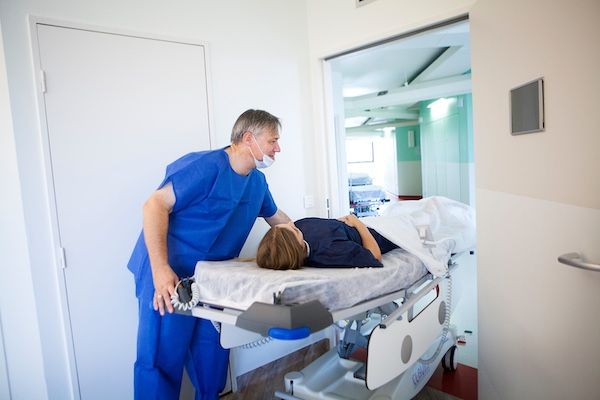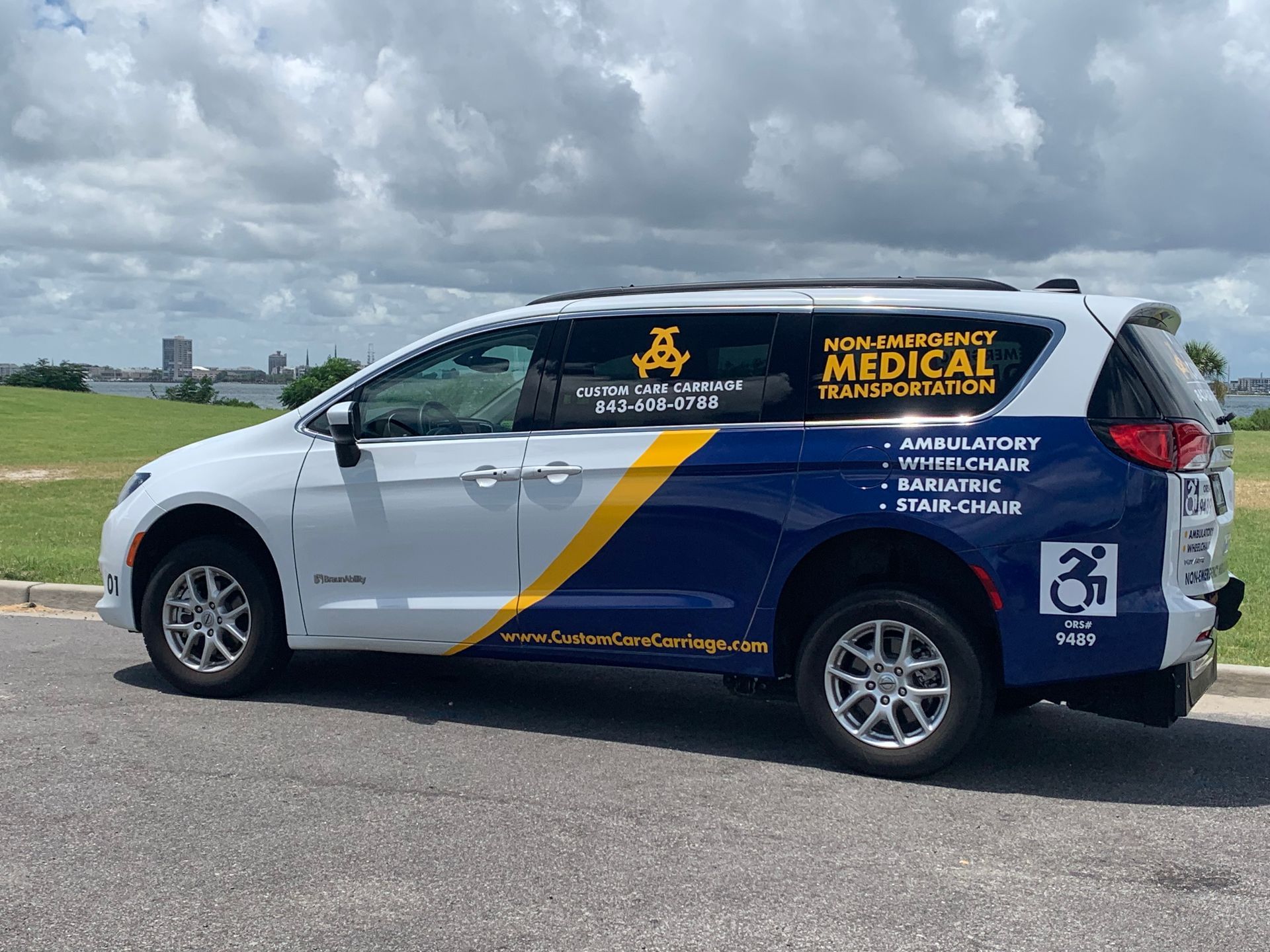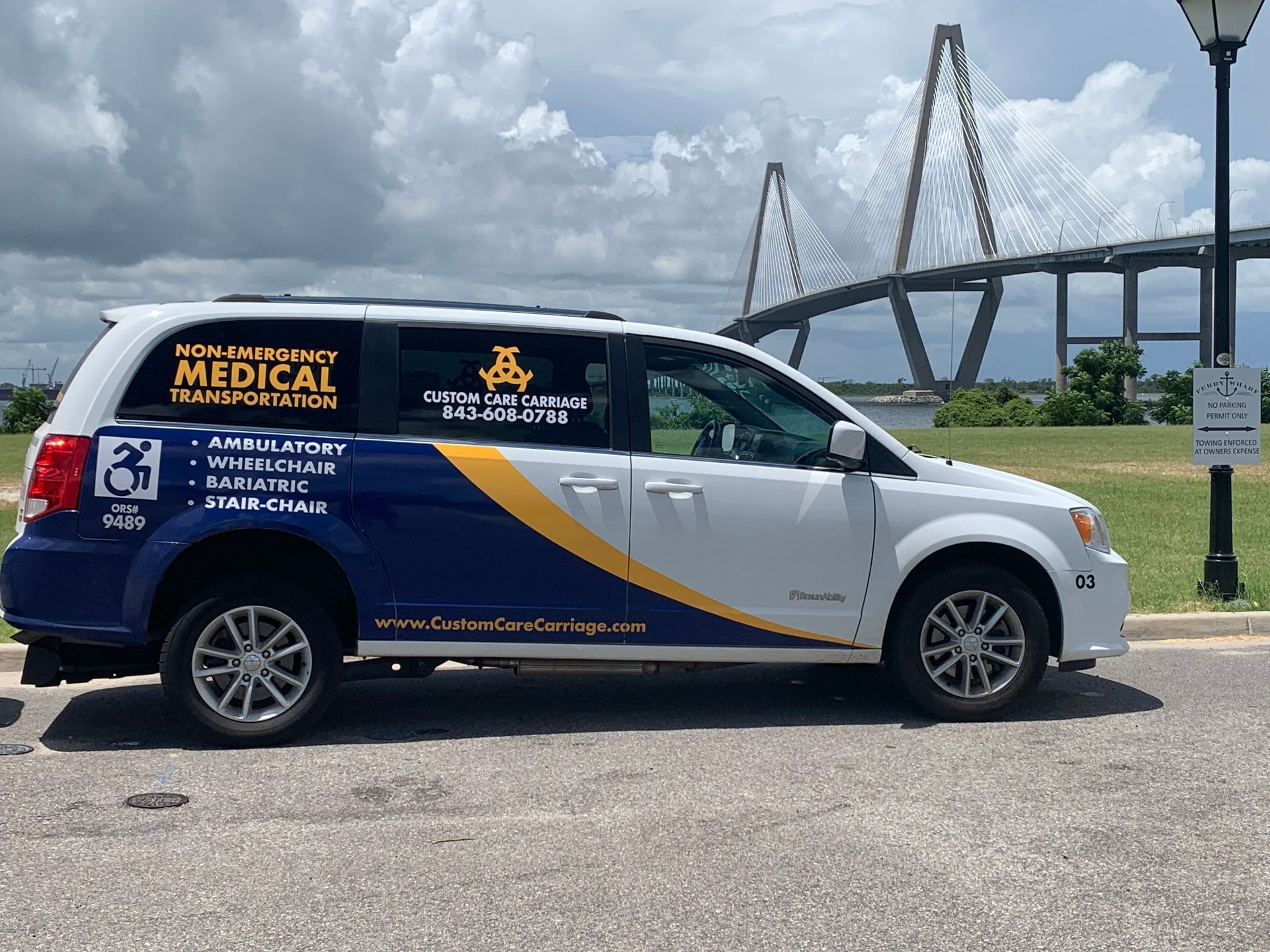How To Make Your Backyard Wheelchair Accessible
June 18, 2021

If you live in a suburban neighborhood and require the assistance of a wheelchair to move around, or if you live with someone who fits that description, one of the first essential things on your to-do list is to make not only the inside of your house wheelchair-accessible but the outside as well.
Some people may assume that the only step required to do so is installing a wheelchair ramp so that the individual (or individuals) in a wheelchair have an alternative to the steps that may lead from the porch or deck to the ground level. Indeed, this is a necessity for any true wheelchair-accessible home. But to actually create a backyard that is friendly to those with limited mobility, a little more work is required than that.
Here are three things we recommend to make your backyard more wheelchair accessible.
Create Open, Flat Space
Some houses come equipped with backyards consisting of nothing but open space. If this is the case with your house, great! You’re one step closer to having a truly wheelchair-accessible backyard. If not, though, the onus falls on you to convert your backyard into an open space- at least to enough of a degree where those in wheelchairs can freely roam around.
We’re not exactly suggesting that wheelchair-bound individuals should perform “wheelies” all across your backyard, but a good rule of thumb is that there should be enough open, flat space in your backyard for them. Nobody likes a chair that’s unstable or sitting on an incline, and that rule holds true for wheelchair users who simply want to enjoy the beauty of nature in their backyards.
Install A Concrete Path To And From Your Frontyard
Pushing yourself or someone else in a wheelchair through a sea of grass is no fun. It’s hard work that ultimately doesn’t push the wheelchair very far, and besides, the wheels will only ruin your grass. In most cases, it’s probably best to simply remove the grass in a given area and install a concrete path that circles the perimeter of your house.
The key to installing this concrete path is to find the happy medium in terms of its width. Too narrow, and the wheelchair won’t be able to utilize it, thus defeating the purpose of installing it in the first place. But too wide, and you’ve essentially turned your backyard into a de facto courtyard, which defeats the purpose of having a backyard in the first place! Be sure to use the wheelchair as a good measuring stick for the path’s width, tack on a few inches and you’ve got your path.
A Wide, Sliding Back Door
Perhaps most important of all, wheelchair-bound individuals need to be able to get inside and outside of the house, right? A sliding door in the backyard that can easily be pushed or pulled by someone in a wheelchair is considered a staple of every wheelchair-accessible home, and it needs to be wide enough for a wheelchair to physically pass through.
Are you in need of non-emergency wheelchair assistance? If so, reach out to Custom Care Carriage today!

Whether you're managing a chronic condition, recovering from surgery, or simply needing a ride for a routine check-up, Custom Care Carriage is dedicated to ensuring you get to your appointment safely, comfortably, and on time. A recent study found that 35.3% of respondents reported having delayed or missed medical appointments or treatments in the past year due to transportation barriers . This highlights the critical role that reliable transportation plays in healthcare access. Custom Care Carriage guides you through the essential steps to prepare for your medical visit, how to schedule your transportation efficiently, and the critical items to bring along for the ride. Our commitment to quality care and expertise is unwavering, and we are here to support you every step of the way. Steps to Prepare for a Medical Appointment 1. Confirm Your Appointment: It’s crucial to double-check the date and time of your appointment to avoid any confusion. A day or two before your visit, a call to the doctor's office can help confirm any specific requirements or instructions related to your appointment. This proactive step shows respect for the healthcare provider's time and ensures you are well-prepared for your visit. 2. Know Your Medical History: Gathering relevant medical information, including your prior diagnoses, medications, and any specific questions you want to ask, is crucial. This information saves time during your appointment and facilitates a more productive discussion with your healthcare provider. Our drivers at Custom Care Carriage understand the importance of this step and are trained to help you prepare for your visit. 3. Plan for Post-Appointment Needs: Think about how you may feel after your appointment. Depending on the nature of your visit, you might require assistance with prescriptions, follow-up appointments, or additional care. Discussing these needs with medical office staff ensures you receive the appropriate guidance and support. How to Schedule Your Transportation Efficiently Effective planning can significantly enhance your experience. Here’s how to efficiently schedule your ride with Custom Care Carriage: 1. Book in Advance: Booking your transportation well in advance is a proactive step that gives you peace of mind and control over your journey. It allows our team at Custom Care Carriage to tailor our services to your individual needs, ensuring availability and smooth logistics on your preferred date and time. 2. Provide Detailed Information: When arranging your transportation, it's vital to provide essential details such as your pickup address, destination, appointment time, and any special requirements (like wheelchair accessibility). This information lets our team prepare the right vehicle and staff to service you effectively, demonstrating our commitment to thoroughness and care. 3. Confirm Your Ride: Confirming your scheduled ride with Custom Care Carriage a day before your appointment is a good practice. This verification ensures that every detail is correct and allows for any necessary adjustments ahead of your journey, providing you with reassurance and a sense of security. 4. Plan for Arrival: Arriving at your appointment 10 to 15 minutes early is recommended. This extra time allows you to complete any paperwork and settle before your visit begins. Communicate this need with our transportation team when you book your ride to ensure adequate travel time, making you feel respected and prioritized.

Undergoing surgery, even for outpatient procedures , is a significant event that can be both exciting and a bit nerve-wracking. One essential aspect of this journey that often goes overlooked is post-surgery transportation. It isn’t just about getting from the hospital to your home; it’s crucial to ensuring your safety, comfort, and overall recovery. We’ll dive into the key benefits of post-surgery transportation, share helpful tips for a smooth ride home, and showcase how Custom Care Carriage is dedicated to supporting your recovery with reliable transport services. Key Benefits of Post-Surgery Transportation 1. Enhanced Transportation Safety: After surgery, you might still feel the lingering effects of anesthesia or pain medication, which can leave you feeling a bit off-balance and less alert than usual. That’s where post-surgery transportation comes in. When you rely on a professional transportation service like Custom Care Carriage, you’re significantly reducing the risks associated with driving yourself or getting a ride with someone without proper training. Our drivers are skilled in assisting patients with various mobility challenges, ensuring you get home safely and securely. 2. Comfort and Convenience in Transportation: The moment you leave the surgical facility, your recovery journey truly begins. A comfortable ride can make all the difference as you head home. With Custom Care Carriage, you can expect a peaceful journey designed with your comfort in mind. Our vehicles are equipped to cater to your needs, providing a relaxing environment where you can unwind and recuperate after your procedure. 3. Support for Family and Caregivers: We understand that family members and caregivers often bear the weight of planning and executing transportation post-surgery. Choosing professional post-surgery transportation with Custom Care Carriage ensures your safety and comfort and provides much-needed relief for your loved ones. They can now focus more on supporting you emotionally, knowing that the transportation is in reliable hands. Our compassionate drivers ensure that each passenger is treated with kindness and respect, giving your loved ones peace of mind and a sense of reassurance.

When it comes to medical appointments, preparation extends beyond just remembering the time and place. The ride to and from your appointment can significantly impact your overall experience. At Custom Care Carriage, we understand that open communication is essential and the key to a successful journey. We provide comfortable and attentive transportation services tailored to your needs, ensuring a relaxing and stress-free experience. Here’s a comprehensive guide on key items to consider bringing, tips for making your journey more relaxed, and advice on communicating specific requirements for your ride. Key Items to Consider Bringing for Medical Ride Preparation 1. Identification and Insurance Information: Always carry a form of identification, such as a driver’s license or state ID, along with your insurance card. This will help streamline the check-in process at your medical facility. 2. Medical Records: If you’re seeing a new doctor or your medical history is complicated, it’s wise to bring relevant medical records or a list of medications you’re currently taking. This includes any allergies or past surgeries that may be important for your healthcare provider. 3. Comfortable Essentials: Depending on the length of your ride and appointment, you should bring items that enhance your comfort. For instance, a small blanket or neck pillow can make your ride more enjoyable, especially if you’re recovering from a procedure or dealing with discomfort. 4. Snacks and Water: If your appointment requires fasting, ensure you have something to eat or drink afterward. Many medical appointments can involve significant waiting times. Keeping hydrated and having a small snack can help maintain your energy levels. 5. Entertainment Options: Bring a book or magazine, or download your favorite music or podcasts to help pass the time. These items can be handy if you feel anxious or need a distraction during your ride. 6. Emergency Contact Information: Keep a list of emergency contacts on hand, especially if you have special medical needs. Make sure your transportation provider is aware of any individuals they should contact in case of an emergency. Tips for Ensuring a Comfortable Experience During Your Medical Ride 1. Choose the Right Time: Try to schedule your appointment and transportation during off-peak hours. Heavy traffic can add stress to your journey. Custom Care Carriage can help you plan accordingly to avoid delays. 2. Dress Comfortably: Wear loose-fitting clothing and comfortable shoes for your journey. These choices will help you feel more at ease, especially if you must sit for extended periods. 3. Communicate Your Needs: Before your ride, let your transportation provider know about any specific requirements you may have. Custom Care Carriage is committed to accommodating your needs, such as mobility support or assistance getting in and out of the vehicle, to ensure a comfortable and stress-free journey. 4. Use Safety Features: Buckle up! Always wear your seatbelt and ensure you’re safely positioned in the vehicle. If you use a wheelchair or mobility device, confirm that the car is equipped to accommodate your needs . 5. Stay Relaxed: If you feel anxious about your medical appointment, practice deep breathing techniques or mindfulness exercises during your ride. This can help reduce stress and create a more calming atmosphere.

As Thanksgiving approaches, many families are eager to gather and celebrate the holiday together. However, for individuals who face challenges with transportation, getting to family gatherings or medical appointments can be daunting. Custom Care Carriage stands ready to make Thanksgiving travel seamless and stress-free for everyone, ensuring that healthcare access is never an obstacle.

Non-emergency medical transportation (NEMT) plays a vital role in improving access to healthcare for individuals who may face challenges in reaching their medical appointments. From seniors and individuals with disabilities to those recovering from illness or surgery, NEMT services ensure patients can get to where they need to go safely and comfortably. In this blog post, we will explore the various destinations that NEMT services can accommodate, highlighting the importance of reliable transport in maintaining health and well-being. 1. Routine Medical Appointments One of the primary uses of non-emergency medical transportation is to facilitate routine medical appointments. This includes visits to primary care physicians, specialists, general check-ups, and preventive care. Regular health assessments are essential for early detection and treatment of medical conditions. For many individuals, especially seniors and those with disabilities, arranging transport can be a significant hurdle. NEMT services bridge this gap, helping patients access these crucial appointments without stress. 2. Dental Appointments Dental health is a key component of overall health, but many individuals struggle to reach dental offices for preventive care, cleanings, or treatment procedures. Non-emergency medical transportation can assist patients in getting to their dental appointments, ensuring they maintain good oral hygiene and address any dental issues in a timely manner. Whether it's a routine cleaning or an emergency dental visit, NEMT can provide the necessary transportation. 3. Rehabilitation Services For individuals recovering from surgery or managing chronic conditions, rehabilitation services can be crucial to their recovery and quality of life. These services may include physical therapy, occupational therapy, or speech therapy. NEMT services offer transportation to rehabilitation centers, allowing patients to attend sessions regularly without hassle. Consistent access to therapy can significantly enhance the recovery process and overall health outcomes. 4. Diagnostic Imaging and Testing Medical diagnostics, such as X-rays, MRIs, CT scans, and blood tests, are often essential elements of patient care. They help healthcare providers assess medical conditions and devise appropriate treatment plans. Non-emergency medical transportation provides a reliable means for patients to travel to imaging centers or lab facilities, ensuring they can complete necessary tests promptly. This timely access is fundamental for accurate diagnoses and effective treatment. 5. Mental Health Appointments Mental health is an equally important aspect of overall well-being, yet many individuals face challenges traveling to mental health appointments. Whether for therapy sessions, counseling, or psychiatric evaluations, NEMT services can assist patients in getting the help they need. Ensuring that individuals can access these critical services fosters better mental health outcomes and encourages a supportive environment for recovery and growth. 6. Specialty Clinics Some patients may require specialized medical care, such as oncology, cardiology, or endocrinology services. Traveling to specialty clinics can be daunting, especially for individuals managing complex medical conditions. Non-emergency medical transportation can help patients reach these specialized facilities safely and comfortably, ensuring that they receive the expert care they need without any added stress or complications. 7. Hospital Discharge Transport After a hospital stay, many patients need transportation home or to a rehabilitation facility. NEMT services bridge this gap by providing safe and reliable transport for patients who may be recovering from surgery, experiencing mobility constraints, or otherwise need assistance in getting to their next destination. This kind of transportation is especially critical for ensuring a smooth transition from hospital to home or a care facility. 8. Long-Distance Travel for Medical Care In some cases, patients may need to travel long distances to access specialized medical services that are not available locally. Non-emergency medical transportation services can accommodate longer trips, providing transport to out-of-town facilities, research hospitals, or specialized clinics that offer specific treatments. This access is crucial for patients seeking advanced medical care. 9. Senior Centers and Adult Day Programs Many seniors may require transportation to attend social activities, wellness programs, or adult day care centers. Non-emergency medical transportation can facilitate these outings, ensuring that older adults can participate in enriching activities that support mental and emotional well-being. Social engagement is vital for seniors, as it promotes cognitive health and combats feelings of isolation. Conclusion Non-emergency medical transportation services are essential for facilitating access to a wide range of healthcare destinations in South Carolina. From routine medical appointments to specialized clinics, rehabilitation services to mental health care, NEMT ensures that individuals can receive the necessary care without obstacles related to transportation. By providing reliable transport to these varied destinations, NEMT plays a vital role in improving health outcomes and enhancing the quality of life for patients. If you or a loved one is facing transportation challenges for medical appointments, consider exploring NEMT services to ensure that healthcare access is not compromised. With reliable transportation, you can confidently prioritize and maintain your health and well-being.

Accessing healthcare services is crucial for maintaining health and well-being, and for many individuals, transportation to medical appointments can be a significant barrier. In South Carolina, non-emergency medical transportation (NEMT) provides a solution for patients needing reliable and safe transport to their healthcare providers. However, understanding the payment plans available for these services is just as important as knowing the transportation options. This blog post will explore various payment plans for non-emergency medical transportation in South Carolina, helping individuals and families navigate costs effectively. What is Non-Emergency Medical Transportation? Non-emergency medical transportation refers to services that provide transportation for patients who need to attend medical appointments but do not require emergency transport. NEMT is crucial for various groups, including the elderly, individuals with disabilities, and low-income patients. This service ensures patients can access necessary healthcare, maintain their health, and receive follow-up treatments without the added stress of transportation challenges. Payment Options for NEMT in South Carolina In South Carolina, the costs associated with NEMT can be managed through several payment plans, depending on individual circumstances. Below are the primary payment options available: Medicaid Coverage One of the most significant sources of funding for non-emergency medical transportation in South Carolina is Medicaid . Medicaid provides NEMT services to eligible individuals at little to no cost. To qualify, a patient must be enrolled in South Carolina's Medicaid program and demonstrate a medical necessity for transportation, such as having a condition that requires doctor visits or medical treatments. Patients can receive pre-approved transportation services to and from appointments, usually arranged ahead of time. Medicaid covers several types of NEMT, including ambulatory, wheelchair, and stretcher transport. For those who qualify, this is typically the most affordable option for accessing necessary healthcare services. Medicare Medicare generally does not cover NEMT services, but there are some exceptions. If a beneficiary has a specific medical condition that prevents them from using traditional transportation methods, they may qualify for transport coverage in certain circumstances. It is vital for patients to check with their Medicare provider to understand their eligibility and any specific criteria for reimbursement. Private Insurance Some private insurance plans may offer coverage for non-emergency medical transportation. However, the extent of this coverage can vary significantly between different insurers. Patients are encouraged to review their policies to determine the benefits available for NEMT services. Some plans may require pre-authorization or have limitations on the number of covered rides, making it essential to communicate with the insurance provider for clarification. Sliding Scale Payment Plans Many NEMT providers in South Carolina offer sliding scale payment plans for individuals who may not qualify for Medicaid or private insurance. These plans adjust the cost of transportation based on the patient’s income level. This approach ensures that lower-income patients can still access essential transportation services without falling into financial strain. Out-of-Pocket Payment For patients who do not have access to insurance or other coverage options, paying out of pocket for NEMT may be necessary. Out-of-pocket rates can vary based on several factors, including distance traveled and the type of service utilized. Patients should request quotes from different NEMT providers to find the best rates for their needs. Many providers offer competitive pricing and may provide discounts or package deals for multiple rides. Local and Community Programs In addition to private NEMT services, various local and community programs may assist with transportation costs, especially for low-income individuals. Nonprofit organizations, faith-based groups, and government initiatives often have funding or resources available for patients needing medical transportation. Researching these programs can yield valuable assistance and additional payment options for qualifying individuals. How to Choose the Right Payment Option Choosing the right payment option for non-emergency medical transportation services involves assessing various factors: Evaluate Eligibility : Start by determining if you qualify for Medicaid or other insurance coverage that includes NEMT. Checking eligibility can quickly reduce transportation costs. Research Providers : Investigate various NEMT providers in your area. Request cost estimates, inquire about payment plans, and ask about coverage under different plans. Comparing options will help you find the best fit for your needs. Consider Sliding Scale Options : If you are on a limited income and do not qualify for other funding, look for providers that offer sliding scale payment plans to ensure affordable access. Seek Community Resources : Don’t hesitate to reach out to local organizations or charities for assistance. They may offer funding or resources to help cover transportation costs. Contact Us Understanding the payment plans available for non-emergency medical transportation in South Carolina is essential for anyone needing access to healthcare services. From Medicaid coverage and sliding scale payment plans to out-of-pocket options and support from local programs, a variety of resources are available to fit different financial situations. By researching options and selecting the best payment plan, patients can focus on what matters most: receiving the care they need without the burden of transportation challenges. If you or a loved one is seeking reliable NEMT services, contact Custom Care Carriage today !

As the demand for non-emergency medical transportation (NEMT) continues to grow, so does the need for qualified drivers who can provide safe and reliable transport for patients. In South Carolina, becoming a non-emergency medical transportation driver involves meeting a range of requirements, ranging from licensing and training to adhering to safety regulations. This blog post will outline the essential qualifications and steps required to become an NEMT driver in South Carolina. Understanding the Role of NEMT Drivers Before diving into the requirements, it’s essential to understand the role of an NEMT driver. These drivers are responsible for transporting patients who need to attend medical appointments but do not require emergency care. The drivers must ensure that passengers reach their destinations safely and comfortably. They also need to provide assistance to individuals who may have mobility challenges, including helping them enter and exit the vehicle. License and Training Requirements Valid Driver’s License : To become an NEMT driver, candidates must possess a valid South Carolina driver’s license. The license should be free of serious violations that may disqualify an individual from driving professionally. Employers typically check driving records to ensure that potential drivers are responsible and safe on the road. Commercial Driver’s License ( CDL ) : While a standard driver’s license is often sufficient for NEMT positions, some employers may require a Commercial Driver’s License (CDL), especially for drivers operating larger vehicles or those equipped with specialized equipment, such as wheelchair lifts. Obtaining a CDL requires passing both written and driving skills tests and meeting specific medical requirements. Background Check : Most NEMT providers conduct background checks on potential drivers. This process includes reviewing criminal history and driving records. A clean record is crucial for maintaining safety and trust with passengers. Driver Training Programs : Many employers provide or require completion of driver training programs. These programs cover essential topics such as defensive driving, patient assistance techniques, and safety protocols. Training ensures that drivers are adequately prepared to handle a variety of situations and can assist patients effectively. First Aid and CPR Certification : Given the nature of the job, NEMT drivers often need to be certified in First Aid and CPR. This certification equips them with the skills to respond to emergencies that may arise during transport, such as medical issues a passenger may experience along the way. Vehicle Requirements Safe and Reliable Vehicle : NEMT drivers must operate a vehicle that meets safety standards and is equipped to transport passengers safely. The vehicle should be well-maintained, regularly inspected, and equipped with safety features such as seat belts and appropriate securement devices for wheelchairs when needed. Insurance : NEMT drivers are typically required to carry liability insurance on their vehicles. This insurance protects both the driver and the passengers in the event of an accident or injury. Employers will often check for proof of insurance before allowing a driver to transport patients. Accessibility Features : If the driver is transporting patients with disabilities, their vehicle must be appropriately equipped. This includes having wheelchair ramps or lifts for those who are unable to walk. Compliance with the Americans with Disabilities Act (ADA) is also necessary, ensuring that the vehicle can accommodate passengers with varying mobility needs. Additional Skills and Qualities Beyond the technical requirements and vehicle specifications, certain interpersonal skills and qualities are essential for NEMT drivers: Compassion and Patience : Drivers should possess a strong sense of compassion and patience to support passengers who may be anxious or in discomfort due to their medical conditions. Excellent Communication Skills : Effective communication is crucial when interacting with patients, their families, and healthcare providers. Drivers must listen to passengers and follow instructions carefully. Problem-Solving Abilities : Situations can often change quickly in the medical transport industry. NEMT drivers should be adaptable and able to handle unexpected challenges calmly and efficiently. Contact Custom Care Carriage Becoming a non-emergency medical transportation driver in South Carolina requires a combination of the right qualifications, training, and personal attributes. With the essential requirements of a valid driver’s license, background checks, training certifications, and a reliable vehicle, prospective drivers can make a difference in the lives of patients needing transportation to medical services. By ensuring safety, comfort, and compassionate care, NEMT drivers play a vital role in enhancing access to healthcare within their communities. If you are interested in pursuing a career as an NEMT driver, take the first step by researching local employment opportunities and training programs that will help you meet these requirements. If you're looking for some non-emergency medical transportation, contact us today !

When it comes to accessing healthcare services, non-emergency medical transportation ( NEMT ) is a critical support system for individuals who may face difficulties getting to appointments. This includes elderly patients, those with disabilities, and individuals recovering from illness or surgery. In South Carolina, NEMT plays a vital role in ensuring that everyone has access to necessary medical care. However, understanding the rates associated with non-emergency medical transportation is essential for patients and their families. In this blog post, we will delve into NEMT rates in South Carolina, what influences these rates, and what you can expect when using these services. What is Non-Emergency Medical Transportation? Non-emergency medical transportation refers to transportation services for patients who need to travel to medical appointments but do not require immediate medical care. This service is critical to ensuring that individuals can access necessary treatments, therapies, and check-ups without the stress of securing alternative transportation. NEMT services may include a range of vehicles, from standard cars to wheelchair-accessible vans, depending on the needs of the patient. Understanding NEMT Rates in South Carolina The rates for non-emergency medical transportation in South Carolina can vary significantly based on several factors, including the type of service required, the distance to be traveled, and the specific provider. While some individuals may access NEMT services through Medicaid or insurance, those who pay out-of-pocket will find a range of pricing structures. Medicaid Coverage : One of the most significant segments of NEMT in South Carolina is associated with Medicaid. Eligible individuals can receive transportation services at little to no cost, depending on their Medicaid plan. This program covers various NEMT options, including ambulatory transport, wheelchair transport, and stretcher transport. Patients need to book their rides in advance, typically 24 to 48 hours before the scheduled appointment, to ensure availability. Private Insurance Plans : Some private insurance plans may include coverage for NEMT services. However, it is essential for patients to check with their insurance provider to understand the specifics of their coverage. Many insurance plans have a limited number of covered rides per year or may require prior authorization, making it crucial for individuals to be informed about their plan's policies. Out-of-Pocket Rates : For individuals who do not qualify for Medicaid or whose insurance does not cover NEMT services, out-of-pocket costs will apply. Rates for NEMT can range significantly based on several factors: Distance : Many providers charge based on the mileage from the pickup location to the destination. Rates can vary, but you can expect fees from $1 to $3 per mile on average. Type of Vehicle : The type of vehicle needed can influence pricing. Standard transportation may cost less than specialized services, such as wheelchair-accessible vans or stretcher transport, which typically have higher rates due to the additional equipment and care required. Time of Service : Rates may fluctuate depending on the time of day. For instance, services requested during peak hours or on weekends may incur higher fees. Factors Influencing NEMT Rates Several factors can influence the rates of non-emergency medical transportation services in South Carolina: Provider Pricing Structures : Each NEMT provider may have its pricing structure based on operational costs, demand, and service offerings. Therefore, various service providers may present different rates for similar transportation needs. Geographic Location : Rates can vary based on the region within South Carolina, with urban areas typically having different pricing models compared to rural or sparsely populated regions due to factors like competition, demand, and operational costs. Special Needs : Additional requirements for patient transport can influence rates. For instance, if a patient has specific health needs that require extra attention, additional charges may apply. Finding Affordable NEMT Options For individuals and families looking for affordable non-emergency medical transportation, here are some tips to consider: Research Providers : Take the time to research and compare different NEMT providers in your area. Look for those with competitive rates and good reviews from past clients. Check Insurance Benefits : Review your health insurance policy to determine if it offers any coverage for NEMT services. If eligible, coordinate with your insurance provider to utilize these benefits. Utilize Medicaid : For those who qualify, applying for and using Medicaid services is one of the most affordable ways to access NEMT. Make sure to follow the proper procedures to secure transportation through Medicaid. Ask for Discounts : Some private NEMT providers may offer discounts for seniors or volume transportation needs. Don’t hesitate to ask about any available options. Contact Us Non-emergency medical transportation is an essential service that improves access to healthcare for many individuals in South Carolina. Understanding the various rates and factors influencing these costs is crucial for anyone considering NEMT services. While Medicaid and some insurance plans can significantly reduce costs, numerous options are available for those needing to pay for services out of pocket. By researching providers, comparing rates, and understanding coverage options, patients and their families can ensure they have the transportation necessary to access important healthcare services. Remember, access to care should never be impeded by transportation challenges. Make informed decisions and take advantage of available resources to maintain your health and well-being. Contact Custom Care Carriage and book your non-emergency transportation today!



